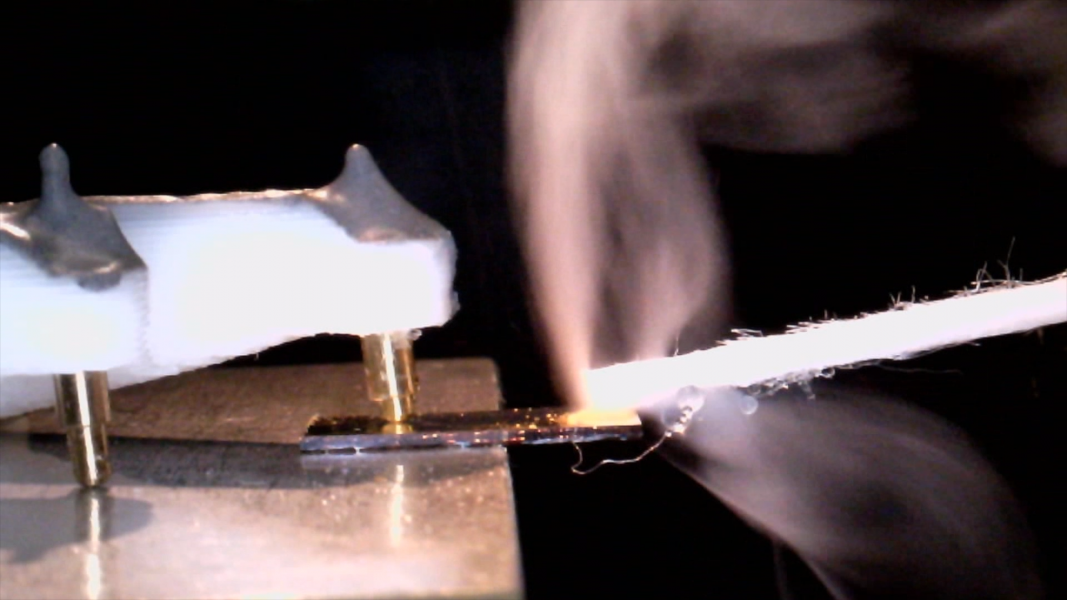Drug delivery inhalers atomize a liquid to effectively deliver medication to a patient. Atomization is the process of forming small droplets from a liquid; however, viscous liquids, such as triethylene glycol (TEG), are more difficult to atomize.
In a paper in Advanced Functional Materials, James Friend from the University of California, and co-workers from the Technion–Israel Institute of Technology, report a simple transducer design that achieves an atomization flow rate and efficiency on an order of magnitude greater than all other known atomizers.
Their atomization device comprises a single crystal of 127.68° Y-rotated lithium niobate (LN) covered on both faces by full electrodes. These electrodes are responsible for generating the thickness-mode vibration necessary for atomization. A region at the edge of the LN transducer is left uncovered and directly contacted with a self-pumping wick, forming a continuously operating device.
The onset of atomization was predicted by the atomization Reynolds number, ReA, which is a balance between the induced momentum and viscous dissipation of the fluid. A variety of liquids of different viscosities were analyzed, including methanol, acetone, isopropyl alcohol, deionized water, and aqueous TEG solutions. ReA, along with the atomization flow rate (qmax), were shown to be inversely proportional to the fluid viscosity. Notably, pure TEG, a highly viscous liquid, was successfully atomized. This is the first time that atomization of a fluid with such high viscosity has been reported.
The researchers foresee that this novel atomization device for viscous liquids could be used for a variety of medical applications, including pulmonary drug delivery.
To find out more about this LN-based atomizer for viscous liquids, please visit the Advanced Functional Materials homepage.

















